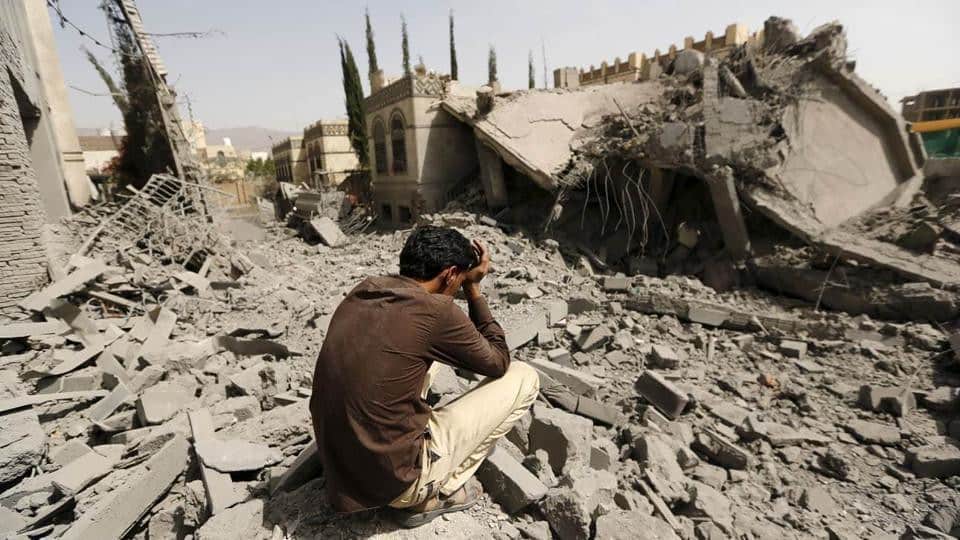Photo: victim of Yemen attack, 20-04-2018 -. Flickr
This opinion piece originally appeared in the Allegiance edition of 14 May
We are about to sign a treaty whereby we can no longer stop arms supplies to Saudi Arabia, among others. Why does it remain so quiet on this, master's student in international law Maurits van Es wonders.
With arms exports, you have to be careful. For instance, weapons supplied by France to Saudi Arabia were eventually used - with the knowledge of the French - in the war in Yemen. Because of this risk, the Netherlands does not supply arms to Saudi Arabia on principle. But this may change: The Netherlands is on the verge of signing a German-French-Spanish arms treaty that hands off the export decision on this.
The outgoing cabinet wants to sign this treaty to boost the European arms industry. With rising global tensions, closer defence cooperation with European allies does not even seem such a crazy idea. Unless joining the treaty comes with losing control over our arms exports and possible involvement in violations of human rights and international law of war. Alarm bells should be ringing, but there remains chilling silence.
The Netherlands is the 11th largest arms exporter in the world
Pretty crazy, considering that the Hague court recently ordered the Netherlands to stop delivering F-35 parts to Israel. The court ruled that changing circumstances in Israel do oblige the Netherlands to check whether supplying weapons is still in line with international law. But exactly this becomes more difficult if the Netherlands joins: the treaty aims for a joint review framework for arms exports. With this, the Netherlands loses its autonomy to test arms exports against European arms export criteria. In the process, democratic oversight becomes almost impossible, as it becomes difficult for the Lower House to keep track of export decisions.
The Dutch arms industry mainly produces small arms components. This is where the Netherlands is very good: we are the 11th largest arms exporter in the world. Research shows that even exports of small, less lethal weapons can contribute to global human rights crises. This brings a great responsibility for the Netherlands.
Although the future treaty countries often show themselves to be good European allies, France and Spain maintain substantially different arms export standards. Consider the French weapons that end up in Yemen. Germany, as a loyal ally, also supplies arms to Israel - which the Netherlands is no longer allowed to do just like that, according to the courts.
The Netherlands is only too quick to lower its arms export standards
In the run-up to joining this treaty, the cabinet already informed the House that the criterion of 'presumption of denial' has abandoned. Under this principle, the Netherlands supplies arms to a number of countries only on the condition that these countries can prove that they will not be deployed in a particular conflict. For example, we only supplied weapons to Turkey on the condition that they were not deployed in the conflict in northern Syria.
The abandonment of this principle shows that the Netherlands is only too ready to lower its arms export standards to be allowed to join the treaty, when we have always been one of the good guys in the European class: The Netherlands was still second on the list of most transparent arms-exporting countries worldwide in 2021, according to research by Small Arms Survey. This upheaval says a lot about the changing zeitgeist. But arms exports are a precarious business and must be scrutinised. That calls for transparency and participation as well as public debate.
Some critical MPs made an effort and called in motions to stick to our own export standards even within the treaty. However, the outgoing foreign trade minister continued to insist on the great importance of accession, and thus to be the least critical treaty partner possible.
Still, one might wonder to what extent the treaty contributes to increasing European defence capabilities. After all, arms exports to other member states will not become easier, but exports outside the Union will. This makes the treaty look more like an economic incentive for our arms producers than a means to strengthen European defence. Being involved in human rights violations because of a mainly economic incentive? That seems worth a bit of fuss to me.





